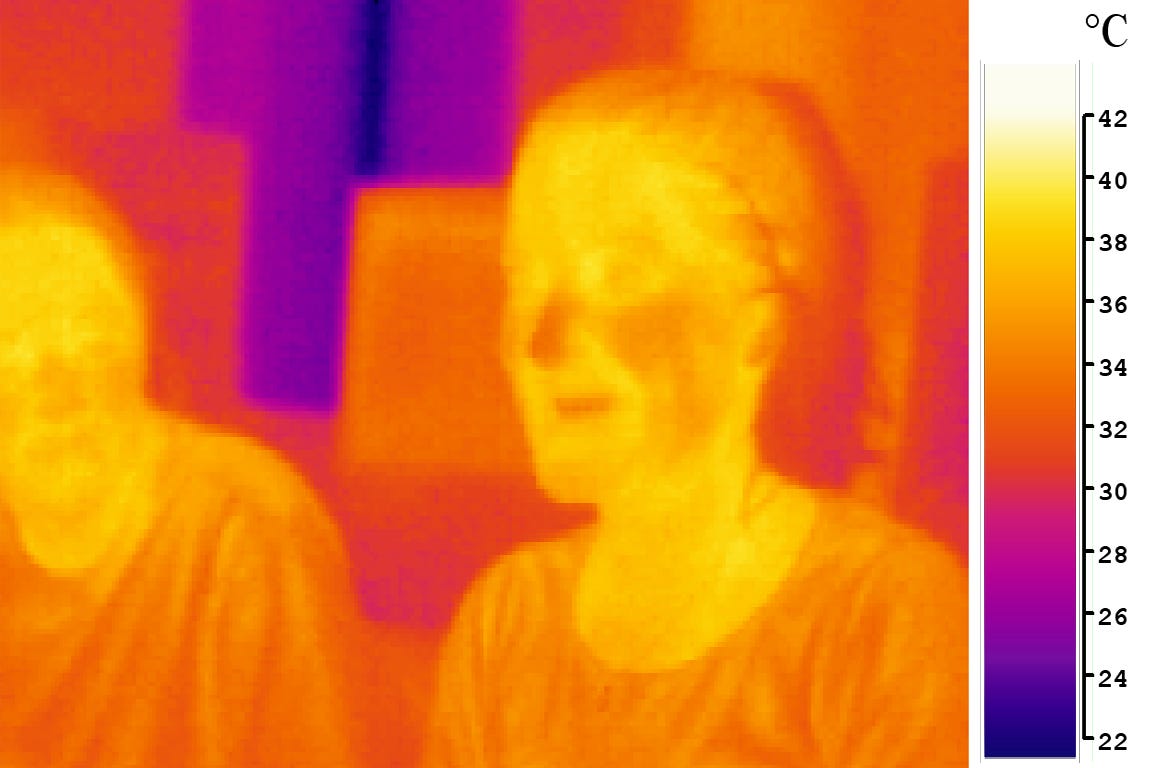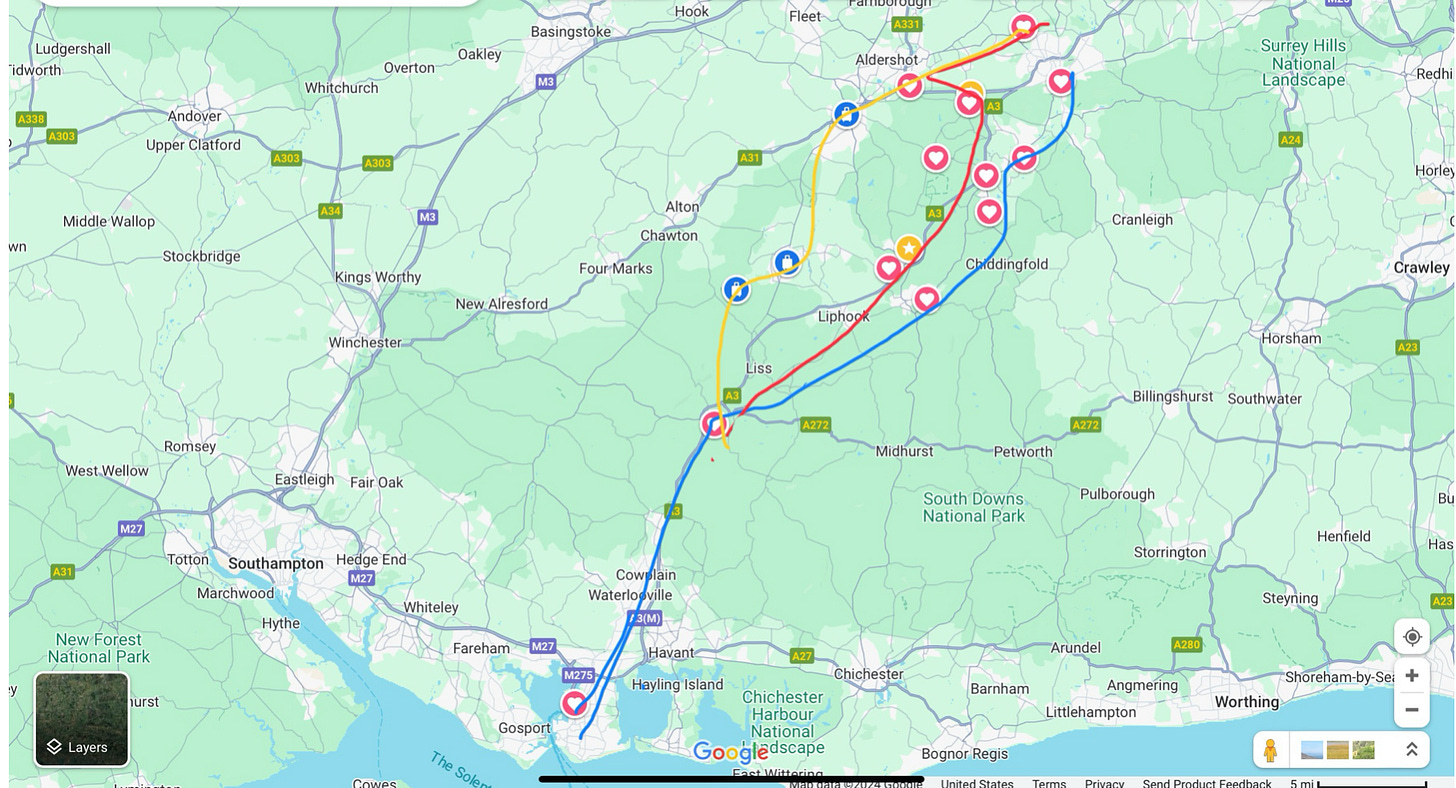Brave New World Again
Noted and newly noticed from a rereading of Brave New World
BRAVE NEW WORLD
ONE, Day 1, AF (After Ford) 632
We are in the UK, in the very stable year of AF 632 where the state motto is "Community, Identity, and Stability." The motto is supposedly, an ironic twist on the motto of the French Revolution: "Liberty, Equality, Fraternity." The model T Ford was released in 1908, so if this is 632 years after that, the year in our terms would be 2040. Yes folks, we are only 16 years away from this.
There is intentional anacronysm as the Director Tomakin of the Hatchery refers to the Japanese earthquake. Huxley had visited Japan in 1926, just three years before Japan had suffered from an earthquake. Huxley describes what is seas, "Yokohama after the earthquake looks like a mining camp that has not yet been finished. Brave New World was published in 1932.
We are at the Central London Hatchery and Conditioning Center. The processing rooms are as follows:
Fertilizing Room with their Fertilizer machines and the Fertilizer employees
Bottling room for fermentation. There are Liners that stuff in the sow's peritoneum and Matriculators that transfer the embryo to the bottle. I'm not sure if these are job functions performed by human beings or by robot assemblies. Then there are Labelers who label each bottle with a T, a circle, or a "?".
Organ Store which helpfully supplies the sow's peritoneum to line the bottles serving as the artificial womb.
Embryo Store. I'm guessing this is a temporary place before they decide to further develop them. We don't know how many racks there are. We will be stopping at Racks 9, 10, and 11, but there have to be so much more. The bottles are arrayed 200 meters wide by 10 high. Assuming a half meter between bottles, that gives us 2000 racks, more if the rocks are slim and can be brought closer together. Each rack is 220 meters long, so under the same assumption, that gives us 220 bottles per pack times 2000 racks equals 440,000 bottles, assuming they are all spaced one meter apart. It appears that the class and occupation one is destined for will determine one's rack. Rack 3 is for aeronautical engineers and Rack 10 is for chemical workers. The embryos on those racks must beconditioned accordingly. Rack 5 is for Alphas.
Social Predestination Room. The Predestinators tell the Fertilizers how many Gammas, Deltas, Epsilons, etc., they need, and then the fertilizers fill the order. From the Embrya store, they are placed on rows of racks that stack up to three stories high . Each rack is put on an assembly line that is 2040 metres long with certain processes and injections applied to them at certain meters of the journey.
Meter 112 - installation of artificial maternal circulation where blood surrogate is pumped in and kept flowing over the fetus
Meter 150 - vaccinating the fetae, which still have gills, for typhus and sleeping sickness, "before the fish become men."
Meter 170 - the embryos are subjected to heat conditioning within a tunnel. Here those destined, for tropical climates are conditioned to hate the cold, and I assume the reverse is also true, even though the novel doesn't mention it.
Meter 200 - testing for gender
Meter 320 - where the blood circulation and oxygen are adjusted to the class the umbrella is destined to become, the lower class, the lower the rate of circulation and oxygen so that lower classes kept "below par".
Meter 328 - injection of parathyroid hormone, too much makes your ears grow big..
Meter 900 - the condition of the Alphas. "You can’t really do any useful intellectual conditioning till the foetuses have lost their tails." It is a mystery what this conditioning actually is.
Meter 1100 -other occupational conditioning, like shaking the test tubes up and down for future aeronautic engineers.
Decanting Room for letting the mixture breathe
Neo-Pavlovian Conditioning Room
We meet the DHC. He explains the Bokanovsky and Podsnap techniques for increasing the number fertilized embryos and bringing them to gestation more quickly. Podsnap is the character in Dickens’s Our Mutual Friend who is so satisfied with the status quo that he cannot understand anyone feeling differently. The name, of course, also suggests snapping the peas in a pod, and, hence, conformity—“as alike as two peas in a pod.”
We also meet Mr. Foster, an employee of the Hatchery playing the straight man to the Director. Foster’s first name commemorates Henry Ford; his surname recalls Sir Michael Foster (1836-1907), an eminent British physiologist and author of The Elements of Embryology (1874). Foster tells us of Pilkington of Mombasa who figured out how to mature the human body at age six. Unfortunately, the mind hasn't developed beyond a six-year-old, and even Epsilons need more more mental development than that.
LENINA
Poetic, "Cold for all the summer beyond the panes, for all the tropical heat of the room itself, a harsh thin light glared through the windows, hungrily seeking some draped lay figure, somepallid shape of academicgoose-flesh, but findingonlytheglass and nickel and bleakly shining porcelain of a laboratory. Wintriness responded to wintriness. The overalls of the workers were white, their hands gloved with a pale corpse-coloured rubber. The light was frozen, dead, a ghost. Only from the yellow barrels of the microscopes did it borrow a certain rich and living substance, lying along the polished tubes like butter, streak after luscious streak in long recession down the work tables."
Some philosophy: "For of course some sort of general idea they must have, if they were to do their work intelligentlythoughaslittle of one, if they were to be good andhappymembersofsociety, as possible. For particulars, as every one knows, make for virture and happiness; generalities are intellectually necessary evils. Not philosophers but fretsawyers and stamp collectors compose the backbone of society."
Vocabulary: fretsaw (bow saw used for delicate fretwork), morula (a circle of cells that results from the division of the fertilized egg), waggish (jocular, mischievous), placentin (a gene encoded insulin-like protein), thyroxin (a thyroid hormone that regulates metabolism), corpus luteum (the remains of the ovarian follicle that has released a mature ovum during a previous ovulation)
"Bokanovsky’s Process is one of the major instruments of social stability!”
“He [Mr. Foster] had a vivacious blue eye. . . “ Did he have only one eye? Or maybe both of his eyes were blue but only one of them was vivacious, i.e., he had a cast in one eye. That would seem to contradict the very perfection the Hatchery is claiming.
"And that,” put in the Director sententiously, “that is the secret of happiness and virtue-liking what you’ve got to do. All conditioning aims at that: making people like their unescapable social destiny.”
TWO - Day 1 continues
Important dates and future history -
1908 BF - the Model T is released
23 AF - little Reuben discovers hypnopaedia
214 AF - first official use of hypnopaedia
We are leaving Mr Foster and the Decanting Room. It's on to the Nursery and the Neo-Pavlovian Conditioning Room. We meet a caste of eight-month old Deltas being trundled along in wire baskets in a food cart (I picture the grocery carts at the local Safeway). They are part of a Bokhanovsky Group which I believe or first the process of splitting a fertilized egg multiple times to produce twins, triplets, quadruplets, n-tuples.
We hear of the scandalous days before State Conditioning Center, when parents vipariously raised their own children. We hear the story of how little Reuben Rabinovitch, who was only brought up to speak Polish, miraculously learned English overnight by falling asleep to the voice of George Bernard Shaw. Thus was hypnopaedia discovered. It took another 200 years for the state to officially test it on a boy named Tommy, and it failed miserably. While Tommy could repeat what he heard in his sleep, the words were all gibberish to him. The technique does have value where independent reason is not required, and we see this demonstrated in the unconscious classroom where courses are being given to sleeping students in Elementary Sex and Elementary Class Consciousness (how ironic is that).
Vocabulary: viscose (rayon, synthetic silk), asaferida (a gum, or resin used in Indian cooking, coming from the root of a giant fennel plant)
With shock conditioning, the babies "will be safe from books and botany all their lives." The lower-caste babies are conditioned to hate the country but love country sports, like conditioning someone to love hiking but hate looking at the scenery.
"The Nile is the longest river in Africa and the second in length of all the rivers of the globe." How is it possible for something to be the longest and yet be the second in length? I think the narrator means that which is the longest depends on what we mean by "river". Often, the Nile basin, which is the source of many rivers, is included in the Nile's length and is this conventionally the longest river. If we were to follow that process consistently, then we wouldn't separate the Mississippi and the Missouri rivers. They would all be considered one river, and thus the Missouri-Mississippi would be the actual longer river. The Nile is longer than either the Missouri or the Mississippi Rivers, but it is not longer than the Missouri-Mississippi River. The confusing sentence is the whole point of the Director's lecture, that hypnopaedia can train one to memorize but not to understand.
"You can’t learn a science unless you know what it’s all about. . . Whereas, if they’d only started on moral education [with regard to hypnopaedia] . . . Moral education, which ought never, in any circumstances, to be rational.”
"wordless conditioning is crude and wholesale; cannot bring home the finer distinctions, cannot inculcate the more complex courses of behaviour. For that there must be words, but words without reason. In brief, hypnopædia. 'The greatest moralizing and socializing force of all time.'"
THREE - Day 1 continues
Out into the garden where the children are playing my favorite game, Centrifugal Bumble Puppy. "The air was drowsy with the murmur of bees and helicopters." Here it is that Polly Trotsky sexually molests a poor boy. Polly is named after Communist Leon Trotsky. After all, if owning personal properties is prohibited, wouldn't that include one's own body? Every body belongs to everybody else, and if you refuse, then it's off to the Assistant Superintendent of Psychology (such matters not being worthy of the time of the superintendent herself). By refusing to give his body over to Polly for sexual play, the boy is clearly displaying anti-revolutionary tendencies.
The "Controllers"? Well, we meet one, his fordship, Mustapha Mond, the Resident Controller for Western Europe! One of the Ten World Controllers!
Later, in the elevators on their way up to the Alpha Changing Room, Henry Foster, and the Assistant Director of Predestination snub Bernard Marx from the Bureau of Psychology. Bernard is so weird.
Maybe later we can go for some entertainment on the holodeck? That is at the Feelies at the Alhambra. The Alhambra was a popular theatre and music hall located on the east side of Leicester Square, in the West End of London. It was the UA cinema of its day. We then meet Lenina's Friend, Fanny Crowne, no relation, in the Girl's Dressing Room. (Fanny works in the Bottling Room.) Dr Wells recommended to Fanny that she take hormone injections to fool her body into thinking it's pregnant, a "Pregnancy Substitution." Supposedly, this is for the health of the woman. No one in brave New World actually gets pregnant.
The erotic description of Lenina undressing and taking a shower is cmontrasted with the chtonic, nauseating description of the viviparous lifestyle. "Home, home-a few small rooms, stiflingly over-inhabited by a man, by a peri- odically teeming woman, by a rabble of boys and girls of all ages. No air, no space; an understerilized prison; darkness, disease, and smells. (The Controller’s evocation was so vivid that one of the boys, more sensitive than the rest, turned pale at the mere description and was on the point of being sick.)" There is a suggestion that the people of Samoa successfully pulled off this grotesque lifestyle.
Vocabulary: Mediterranean heather, teeming woman (a pregnant woman)
“Main Day-shift off duty. Second Day-shift take over. Main Day-shift off .” Imagine coming from 4000 alarm speakers at once.
"History is more or less bunk." --Henry Ford "He [the Controller] waved his hand; and it was as though, with an invisible feather wisk, he had brushed away a little dust, and the dust was Harappa, was Ur of the Chal- dees; some spider-webs, and they were Thebes and Babylon and Cnossos and Mycenae. Whisk. Whisk-and where was Odysseus, where was Job, where were Jupiter and Gotama and Jesus? Whisk-and those specks of antique dirt called Athens and Rome, Jerusalem and the Middle Kingdom-all were gone. Whisk- the place where Italy had been was empty. Whisk, the cathedrals; whisk, whisk, King Lear and the Thoughts of Pascal. Whisk, Passion; whisk, Requiem; whisk, Symphony; whisk."
"And home was as squalid psychically as physically. Psychically, it was a rabbit hole, a midden, hot with the frictions of tightly packed life, reeking with emotion. What suffocating intimacies, what dangerous, insane, obscene rela- tionships between the members of the family group! Maniacally, the mother brooded over her children (her children). brooded over them like a cat over its kittens; but a cat that could talk, a cat that could say, “My baby, my baby,” over and over again. “My baby, and oh, oh, at my breast, the little hands, the hunger, and that unspeakable agonizing pleasure! Till at last my baby sleeps, my baby sleeps with a bubble of white milk at the corner of his mouth. My little baby sleeps .”
FOUR - Day 1 continues
Lenina meets Bernard outside the male Alpha Changing Room, "a popular girl. . . [who] at one time or another, had spent a night with almost all of [the boys]." She's popular with boys like George Edzel and Benito Hoover. Lenina and Bernard discuss vacation plans for New Mexico. In the future, how does one get from London to New Mexico? Well, one takes the Blue Pacific Rocket from the Charing-T Station in Westminster or from the Hampstead Station in Camden. The Red Rocket will take you to New York.
Are the classes further subdivided? We are in an elevator operated by an "Epsilon-Minus Semi-Moron," who is excited by the possibility of going to the Roof! Perhaps there he can catch a glimpse of sunlight. But no, the poor beast is relegated to the depths of Floor 18. On the roof, we see that it is a beautiful, bright sunny day, a perfect one for Obstacle Golf (isn't that basically mini golf?)
Vocabulary: parathyroid (small endocrine glands in the neck of humans), a pneumatic woman is a busty one,
FIVE - every event, from Chapter 1 to this chapter, has all taken place in one day
Lenina and some guy named Henry are at the Stoke Poges Club House, located near the Internal and External Secretion Trust (cattle ranch?) which we learn provides hormones and milk for the factory at Farnham Royal, a parish in Buckinghamshire, north of London. They hop into a helicopter and fly over the golf course and the barracks of the Alphas, Betas, and lower castes. They also fly over the Slough Crematorium. He explains the phosphor recovery process to Lenina "telegraphically"?
SIX
Lenina is planning a vacation with Bernard to New Mexico who it turns out is an Alpha-Plus psychologist. She finds Bernard a little little bit strange and thinks maybe she should go on vacation instead with Benito (another provocative name) who is vacationing at the North Pole, but she's been there before and doesn't particularly like it. They don't have any scent organs? And not enough escalator squash courts. She had been to North America before, to New York, hanging out with Jean Jacques Habibullah and Bokanovsky Jones. leaning towards Bernard in New Mexico because that will give her an opportunity to visit the mysterious Savage Reserve.
Lenina asks Bernard out on local dates, like swimming at the Toquay Country Club, dinner at the Oxford Union, and electromagnetic golf at Saint Andrews, but Bernard is not interested in any of these activities.
SEVEN
At the Pueblo of Malpais (bad country), the heart of darkness.
SIXTEEN
Bernard, Helmholtz and John visit Mustafa. We learn that butler's, even those of world controllers, are Gamma class, still better than Delta. Books on display in the waiting room include My Life and Work, by Our Ford, published i Detroit by the Society for the Propagation of Fordian Knowledge. The pornographic literature is kept elsewhere in a safe as we will learn in the next chapter.
Vocabulary: bobbin (in the future, we will read on bobbins, spools around which wire is coiled, a throwback to papyrus scrolls)
SEVENTEEN
"'ART, SCIENCE--you seem to have paid a fairly high price for your happiness,' said the Savage. . . " Mond reminds him that there used to be religion before the Nine Year War. Then the controller pulls out a copy of the Bible, Thomas à Kempis The Imitation of Christ, William James' The Variety of Religious Experience, and other pornographic books. The Cardinal Newman of 19th century England has been replaced by the Arch-Community-Songster. John is familiar with the former from Shakespeare's Pandulph of Milan in the play, The Life and Death of King John. You see, John really has read everything of Shakespeare, even the more obscure works. In addition to producing a book of Newman, he pulls one out from the 18th century French philosopher, Maine de Biran. "'He was a philosopher, if you know what that was.' 'A man who dreams of fewer things than there are in heaven and earth,' said the Savage promptly." Incidentally, Huxley's lectures on the supernatural reveal that John's thoughts are his own (or is that the other way around?).
In his lecture at Berkeley in 1962, Huxley stated that in order for a society to work, there have to be powerful people at the top who aren't conditioned, people at the top who can evaluate what needs to be tinkered in the society to improve its conditions. Another way to put it is that in order to impose a condition on someone, the person imposing it cannot themselves be conditioned (at least not by the same condition they are imposing on others). Ladies and gentlemen, I give you Mustafa Mond!
"But if you know about God, why don’t you tell them?” Zarathustra tried to do the same thing with regard to the Übermensch, but the crowd preferred the entertainment of the tightrope walker and the clown.
"And why should we go hunting for a substitute for youthful desires, when youthful desires never fail? A substitute for distractions, when we go on enjoying all the old fooleries to the very last? What need have we of repose when our minds and bodies continue to delight in activity? of consolation, when we have soma? of something immovable, when there is the social order?” -- Mustafa Mond (modeled after Atatürk).
“You remind me of another of those old fellows called Bradley. He defined philosophy as the finding of bad reason for what one believes by instinct." ( F. H. Bradley, Appearance and Reality, 1893: "Metaphysics is the finding of bad reasons for what we believe upon instinct; but to find these reasons is no less an instinct.")
“'Do you remember that bit in King Lear?' said Savage. “The gods are just and of our pleasant vices make instruments to plague us. . . "'" (Edgar in Act 5, compare Act 4, "As flies to wanton boys are we to the gods, They kill us for their sport. . . So distribution should undo excess, And each man have enough." John is Edgar, Mustafa, Gloucester. The story between Edgar and Edmund goes like this. Edmund was a louse who successfully seduced two married princesses--Goneril and Regan, who were not themselves fine, upstanding characters--and betrayed his brother Edgar to their father, the Earl of Gloucester, by telling lies about that resulting in him being disinherited. In the meantime, Edmund and the two princesses plotted to steal the throne from King Lear. When Gloucester learns of it, he gets into a fight between Reagan and her husband, has his eyes gouged out, and flees.
Edgar later gets revenge and defeats and kills Edmund, "proof" of God's justice. Mustafa, however, counters, "You can indulge in any number of pleasant vices with a freemartin and run no risks of having your eyes put out by your son’s mistress." There is no marriage in the brave New World, hence no need for all this romantic melodrama. “Are you sure?” asked the Savage. “Are you quite sure that the Edmund [the free Edmunds of the Brave New World] hasn’t been just as heavily punished as the Edmund [of King Lear]? . . . Haven’t they used his pleasant vices as an instrument to degrade him?” Mustafa then replies that whether the sexually loose people of the current society are being punished or not all depends on the criterion used to evaluate suffering. It's rather interesting that John is quoting Shakespeare as proof of God and Mustafa is doing the same as proof of the absence of God. I'm not sure whether Shakespeare is proof of anything at all with regard to this point.
“But industrial civilization is only possible when there’s no self-denial. Self-indulgence up to the very limits imposed by hygiene and economics. Otherwise the wheels stop turning.” Wow, the consumer society so evident, even back in 1932. It feels like nothing's changed.
Socrates stated in the Republic that progress creates luxuries that result in vice and disease. Far better for society to remain simple and rustic. Compare Mustafa, "You can’t have a lasting civilization without plenty of pleasant vices.”
The Savage then quotes Othello, "If after every tempest came such calms, may the winds blow till they have wakened death." The point is that we do not want to calm peace of the brave New World, it takes energy and passion to make things happen. After all, a windless sea is no friend to the sailor. John might well have referenced Iphigeneia at Taurus had he access to other books than Shakespeare.) John tells us the tale of the girl of Mataski. Her father set a charge on her suitors. In order to win her hand, they had to spend all morning in the garden while being bitten by magical flies and mosquitoes.
Vocabulary: chastity means neaurasthenia (grumpiness and irritability)
“Christianity without tears—that’s what soma is.” — Mustafa Mond
“Isn't there something in living dangerously?” —John Savage
EIGHTEEN - this takes place over five days
Day 1 - John is visited by Bernard and Helmholtz, he decides to travel up to the valley and flies to Elstead and spend a sleepless night there. John the Savage (Tarzan published in 1912) who is only a savage relative to the Brave New World, I mean how savage can a Shakespearean be, the same with the Native Americans and Conrad's Africans, which I believe was Achebe's point. Also the maladjusted Bernard and Helmholtz are on hand.
The bastard name, "Savage," is interesting. In Game of Thrones, bastards take as surnames the symbol of their nation, the Northerners take the name of Snow, the Southerners, the name of Sand, those of the Delta, the name of Rivers, etc. In Brave New World, all children of natural procreation takes on the name of their Savage Kingdom, they are all fatherless despite having identifiable fathers, they lack the parents and the filial love that only State-controlled conditioning can provide.
The uplines and downlines to and from Portsmouth on the South Coast of Surrey.
The routes of the helicopters are predetermined. The blue "downline" goes from Guildford the down-line followed the Wey valley to Godalming, then, over Milford and Witley, proceeded to Haslemere and on through Petersfield towards Portsmouth. The red upline starts from the bottom at Portsmouth and moves up through Grayshott, Elstead, Puttenham, Tongham, and parallels it, from top to bottom, the stops are Worplesden, or at least it did so originally. The stops of the red and blue lines are marked with pink-and white-circles, but note that at the points marked in yellow-and-white circles (Hog's Back and Hindhead), there is no more than seven kilometers between the lines. Due to traffic accidents, the helicopter upline was extended west to the yellow line. John flies up the yellow line over Farnham, Bordon, anc Selborn (the blue-and-white circles) and then stops and settles inifylluc that John stops at a lighthouse in idyllic Elstead. Now you will see, if you look at the map, that Elstead is nowhere near water, but it is possible to have inland lighthouses. Elstead, apparently, was the home of a famous lighting factory, so maybe they built a lighthouse to honor their lighting industry? Maybe it's a lighting tower to alert helicopters?
Day 2 - feeling guilty over a moments happiness, John starts to flogging himself and is witnessed by two passing Delta-minuses. He lives in this lush but solitary country like a Robinson Crusoe and starts take pleasure from crafting a bow and arrows planning how he is going to take care of himself on his self-imposed Island. He then remembers the death of his mother, Linda, and feels guilt for being happy. Who exactly are "those loathsome twins, swarming like lice across the mystery of her death"?
Days 3 & 4 - this flagellation supposedly continues..
Day 5 - reporters arrive on the scene, the first being Primo Mellon from the Hourly Radio, wirelessly connected to his producer Edzel (this cannot be a take on Ford as the Edsel model wasn't released until the 1950s). John loves this guy apparently as much as he loves another character encountered earlier, the Arch- Community-Songster of Canterbury. These headlines are the result of that encounter: HOURLY RADIO REPORTER HAS COCCYX KICKED BY MYSTERY SAVAGE. . . SENSATION IN SURREY.” Then reporters arrive from other science fictional outlets: the Frankfurt Four-Dimensional Continuum, The Fordian Science Monitor, and The Delta Mirror, and the New York Times! (I don't think the latter’s inclusion was meant as a compliment, but in Huxley’s defense, he hadn't heard of Fox News.)
Characters from Religion & Literature: Claudius (Hamlet), Awalawilona (supreme deity of the Pueblo Zuñi, New Mexico), Pookong (or Puukon, another deity native to New Mexico).
Vocabulary: ferroconcrete (cement reinforced with rebar), Riemann-surfaces, (necessary to Electromagnetic Golf and Tennis, none in the Shire of Elstead), hazel trees (old Mitsima taught him how to make arrows out of saplings), benighted (lacking education or knowledge, not to be confused with beknighted,
“Kohakwa iyathtokyai!” Huxley got it from a book of Zuñi folk tales written by Frank Hamilton in 1901. In the story, old Mitsina is watching some boys playing a game involving throwing sticks at a target. When a lad struck the mark Mitsina would exclaim, “Kohakwa iyathtokyai!” as much as to say: “Good for you, old fellow!
https://freemusicarchive.org/music/Akchamel/Pus_Chen/AkChamel_-_Pus_Chen_03_Kohakwa_Iyathtokyai/
“Evil’s an unreality if you take a couple of grammes.” — The Fordian Science Monitor








Thank you, Rich, for taking the time to read it. I'm experimenting with the unoriginal method of analyzing the novel through its elements--characters, setting, plot, themes, vocabulary, etc. It winds up being more annotation rather than a commentary, but I hope it bring interesting things about the novel into light.
Thanks Gerry!